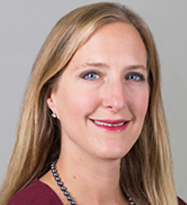
2024 Mentors
REACH U2 mentors
Kelly Baron, PhD, MPH, DBSM
- Email: kelly.baron@utah.edu
- Department: Department of Family & Preventive Medicine
- Mentor Title: Professor
- Project Title: Sleep health disparities: implications for cardiovascular disease and diabetes
- Project Background
About 1/3 of the population does not achieve the recommended 7 hours of sleep each night. There are many causes of short sleep duration and poor sleep quality, including age, health status, stress, employment and housing conditions. The consequences of insufficient sleep and sleep disorders are wide-reaching, including increased risk for high blood pressure, diabetes and Alzheimer’s disease. Students who join our lab will participate with our group for a variety of ongoing project, including a study of sleep and eating behaviors, an intervention to improve sleep among adults with high blood pressure, a study adapting a sleep apnea intervention for Hispanic couples in which one partner is recently diagnosed with starting treatment, and a study of older couples’ sleep and memory in daily life. -
Student role
- For the first 2 weeks, the student will observe the lab activities and choose a project based on interest and study availability.
- Students will participate in study operations meetings
- Assist with ongoing study activities including recruitment (in person, telephone, posting flyers, mailing letters), conducting telephone memory assessments
- Assist with sleep assessments, such as setting up or downloading sleep data collection, entering data.
- Assist with online focus groups, coding focus group data
- Student learning outcomes and benefits:
-
- Experience working with a team to complete research with human participants
- Learning about memory screening
- Experience collecting sleep measurements
- Working with me and the team to develop a summer project based on our current data and the students interest
- Completion of a poster of the results and presenting at the research day in August.
-
Mentoring philosophy and mentoring activities
- My overall philosophy is a growth mindset for mentoring. Mentees do not arrive to college knowing how to conduct research. They may not even know why they are told to get experience in research, other than that it will help in their future applications. I hope that in my lab, students will learn about how scientific studies are conducted, delve into how results of studies are interpreted and implications of the research we are conducting. Students know that I value all tasks big and small and students learn how their activities fit into the big picture of the study goals.
- I will meet one on one with the REACH mentee weekly and will have other meetings as needed. The REACH mentee will also have frequent contact with other lab employees and students who will meet with them and guide them in their daily activities.
-
Mentor expectations:
The student will:- Attend relevant lab meetings and trainings
- Take an active role in learning and seek out support when they have questions.
- Perform study tasks carefully with attention to detail
- Interact with participants respectfully and ethically
- Arrive to meetings on time and prepared to discuss their progress and barriers.
Teresa (Tess) DeAtley
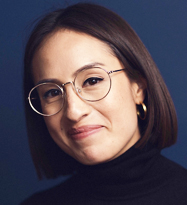
- Email: tess.deatley@utah.edu
- Department: Department of Family & Preventive Medicine
- Mentor Title: Assistant Professor
- Project Title: Exploratory Design Approaches for Health Equity Research
- Project Background
Multimodal research involves collec6ng different types of data using one or more method. In biobehavioral studies this approach can combine multiple modalities such as behavioral questionnaires, biological data, and laboratory tasks such as eye tracking. In qualitative methods, this may include collec6ng verbal and nonverbal forms of information from participants. The student involved in this project will learn about multimodal research design for exploratory research within the field of health equity. Students will have the opportunity to work with this data at the stage of data cleaning and analysis. Data will be made available to the student from one of three projects that employs these methods: 1) a qualitative study of very low nicotine content cigarettes among people with depression and anxiety disorders who smoke, 2) an online web panel survey of smokers and non-smokers from a racially and ethnically diverse background, or 3) a statewide longitudinal observational dataset. - Student learning outcomes and benefits:
This project is designed to give an undergraduate REACH U2 scholar hands-on experience with the phases of conduc6ng public health research. Dr. DeAtley will work with her mentee to determine the skills and data analysis priori6es they would like to develop during their research scholar experience. Possible avenues could include but are not limited to, literature review, hypothesis or research question generation, data cleaning, descrip6ve data analysis or predictive modeling, scien6fic writing and data visualization. Statistical or qualitative programming experience is not required but some background knowledge is an asset. This research experience is designed to provide introductory exposure to qualitative and quantitative research that was collected to answer exploratory research questions with a health equity focus. At the conclusion of this experience the REACH U2 scholar will be able to demonstrate how they have managed, cleaned, analyzed and synthesized qualitative or quantitative data which will be a valuable skillset for individuals interested in pursuing higher educa6on in the biomedical or public health sciences. Mentoring philosophy and specific mentoring activities: I believe that mentoring is an essen6al aspect of teaching and students can gain invaluable experience by doing research and engaging with current day challenges in public health. Research mentorship is often overlooked at the undergraduate level, and it is my goal to provide hands-on training doing public health research as a mentor in this program. It is my goal to facilitate ways a REACH U2 scholar can think about, conduct and analyze qualitative and quantitative data within a larger socio-political context by thinking about ways they can disseminate their work. It is my hope that in addition to developing hard skills for the REACH U2 scholar, I will also work with them to help them develop their own distinct research interests and explore ways they can pursue that moving forward either professionally or through higher education. At the start of the summer, I will work with the scholar to develop a detailed training plan and timeline based on the skills and goals the student is interested in developing. I will ensure that I am available to meet with the REACH U2 scholar weekly or more, as needed, to ensure that the most is made of their research experience. I will provide training resources for programming packages where relevant. I will also review research outputs and provide feedback (on results, a poster or abstract) and discuss ques6ons as they arise. - Mentoring expectations
I do not have access to the mentor expectations outlined by the program beyond what is available online. I have reviewed the online materials and I agree to these expectations as a research mentor.
Ursula Martínez, PhD
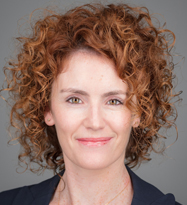
- Email: u6056031@utah.edu
- Department: Department of Family & Preventive Medicine
- Mentor Title: Assistant Professor
- Project Title: Enhancing Motivation to Quit Smoking via Self-help Intervention Targeted to Cancer Type
- Project Background
In addition to the widely known association between smoking and lung or head and neck cancers, today we know that smoking causes cancers of the bladder, cervix, colon, rectum, esophagus, kidney, larynx, liver, pancreas, and acute myeloid leukemia. Smoking after a cancer diagnosis increases the chances of the cancer returning or spreading and it reduces cancer treatment efficacy and survival, regardless of cancer type. Thus, it is critically important that patients with any cancer type quit smoking. However, patients may feel it is not the right time to quit, particularly when faced with a new stressful, life-changing diagnosis such as cancer. In a previous study, we found that, compared to patients with lung or head and neck cancers, those with cancers that are not typically associated with smoking (e.g., colorectal) were less motivated to quit, which reduced their likelihood of quitting smoking. Thus, we created an intervention in the form of brief booklets targeted by cancer type (i.e., breast, bladder, colorectal, gynecological, skin melanoma) that explained the connection of smoking and each cancer, and it summarized the benefits of quitting smoking after a cancer diagnosis. This NCI-funded study will take the next step in this line of research by conducting a pilot randomized controlled trial to examine feasibility of RCT procedures. In addition, using a sequential mixed-methods approach, we will conduct formative evaluation to assess contextual factors to inform future intervention implementation into routine care. - Student role
The student working on this project will gain a deep understanding on the burden of tobacco use in the oncology population. In addition, they will have hands-on experience working on a clinical trial. The student will integrate with the study team and will participate in multiple daily tasks such as preparation of study materials, database development and documentation, regulatory procedures (e.g., IRB submission), patient recruitment, data collection and curation, interview guide development and qualitative analysis. The student will be involved in team meetings and will work closely with the principal investigator on developing science communication skills and data dissemination activities as opportunities arise. - Student learning outcomes and benefits:
Tobacco use is a major public health problem that is involved in multiple chronic diseases and affects vulnerable populations disproportionately. Thus, the goal of this research experience is that the student acquires knowledge and skills that can be transferrable and applicable to many future career opportunities. Therefore, the student will actively participate on an NCI-funded study and will be able to understand the nuances of conducting a randomized controlled trial. The student will also develop key skills working with the oncology patient population that can be applicable to populations with other chronic conditions. In addition, the student will work closely with the PI in reviewing scientific literature, developing a research question, and relaying scientific findings. There will also be opportunities to enhance professional development skills such as writing a CV, applying to graduate school, public speaking, etc. - Mentoring philosophy and specific mentoring activities
As a mentor, it is very important to me to understand what are the students’ interests and future career goals to find opportunities and experiences that would help them in their future academic journey. At the beginning of the program, we will design a plan in which we will come up with aims that we would like to accomplish during the summer. We will discuss how to manage time efficiently, by balancing time commitments in the study vs. time dedicated for writing and other educational activities. I will also provide guidance in every step of developing a research project and how to present it to an audience. In addition to regular meetings, I enjoy having regular interactions to establish more personal connections and informal mentoring, so I keep my door open and students are welcome to pop in any time.
Brock O’Neil, MD
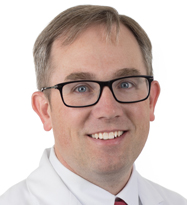
- Email: Brock.ONeil@hci.utah.edu
- College: School of Medicine and Huntsman Cancer Institute
- Department: Department of Surgery
- Mentor Title: Associate Professor
- Project Title: Cancer Health Services and Disparities Research
- Project Background
Much of our group’s research examines system level problems that result in delivery of low-value care or contribute to health disparities. Undergraduate students will select from a portfolio of projects that examine differences in access, social support, socio-economic status and opioid abuse as contributors to disparities in outcomes among vulnerable populations. We will then focus efforts on disseminating research through a mentored experience that emphasizes scientific writing and presentation with additional exposure to experiences across the research continuum from project inception to publication. - Student role
Our research group has multiple projects that are ready for dissemination. The primary role for students working with our group is to write about our group’s research findings. This includes writing scientific abstracts, papers and posters. In addition, interested students are provided with opportunities to shadow in a clinical setting including in the operating room and outpatient clinic - Student learning outcomes & benefits
Students will learn valuable skills as a scientific writer and be included as an author on any scientific publications to which the student contributes work. Those interested in pursuing a career in medicine will also be provided with exposure and time to explore clinical aspects of the field. - Mentoring philosophy and specific mentoring activities
Dr. O’Neil works with participating students to develop a tailored plan that achieves the individual’s goals. Students meet with Dr. O’Neil at the beginning of the research experience to define goals and expectations. They will then have a weekly meeting to establish a research and clinical observation plan which will be executed by the student as an independent learner. They will also participate in a weekly lab meeting where they are integrated as a member of our research group.
Abigail (Abby) Pulsipher, PhD
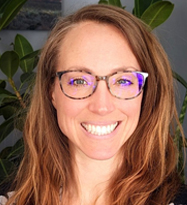
- Email: abigail.pulsipher@utah.edu
- Department: Head and Neck Surgery and Molecular Pharmaceutics;
- Mentor Title: Research Assistant Professor of Otolaryngology
- Project Title: Evaluation of New Diagnostic and Prognostic Tools for Eosinophilic Chronic Rhinosinusitis
- Project Background
Eosinophilic chronic rhinosinusitis (eCRS) is a debilitating and costly inflammatory sinonasal disorder that significantly impacts the quality of life and productivity of those affected. Patients with eCRS experience persistent sinonasal symptoms despite prolonged medical management and are likely to undergo multiple sinus surgeries to control their disease. Accurate diagnostic and prognostic testing options for eCRS remain limited. The ability to identify patients with eCRS and monitor their disease progression and treatment response at the point-of-care would be of tremendous benefit to patients and providers. Your summer research project will be aimed at evaluating the accuracy of a novel, rapid test to diagnose eCRS and clinical significance of a newly discovered prognostic marker for patient outcomes and predicting treatment response. The long-term goal of this project is to improve patient access to an accurate diagnosis of eCRS, and in turn, improve access to personalized medicine in underserved communities, which are often disproportionally affected. - Mentoring Philosophy
I have an open-door policy where students can freely ask questions and receive the help and education they need when they need it. As our team is committed to excellence in the research education and training of future pharmaceutical and translational scientists, I meet with students formally at least bi-weekly, and informally as needed. UROC Innovations Lab and collaborators have cultivated a positive and rich research environment comprising of individuals with diverse backgrounds who embrace all. My mentorship will extend beyond our time together, and I hope to be able to help you along your life journey in whichever path you make for yourself.
-
Mentor expectations
- Work with Dr. Pulsipher, graduate students, and research personnel on your project
- Complete necessary on-line trainings to work with human subjects
- Generate, analyze, and interpret data from laboratory experiments
- Attend bi-weekly mentor meetings with Dr. Pulsipher and monthly UROC Innovations and Ghandehari (collaborator) Lab meetings with other colleagues and students
- Collect data and biological specimens with clinicians in clinic and in the operating room
-
Learned Skills
- Scientific literature interpretation
- Protein and gene studies and data analysis
- Immunohistochemistry – staining human tissues
- How to communicate science to peers, mentors, and clinicians
- Problem solving within a group setting
- Preparing and presenting scientific power point and poster presentations
